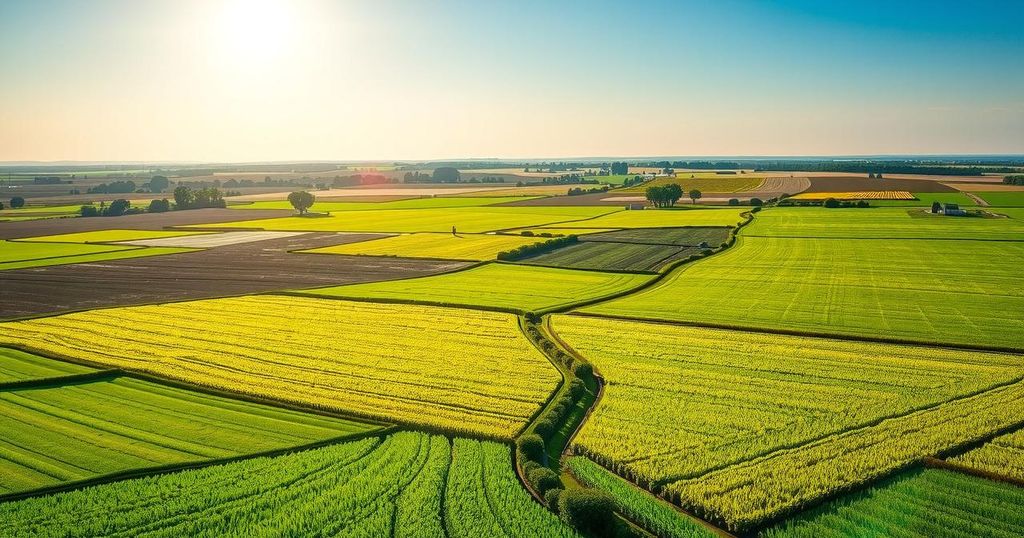In Colombia, rural women’s struggle for land ownership and social justice is pivotal, representing resilience in the face of systemic oppression. They produce nearly 50% of food and serve as guardians of traditional practices, seeking to challenge agribusiness and advocate for their rights through initiatives by organizations like Fensuagro. Despite their representation, only 26% own the land they work, necessitating continued collective action for equity and transformation.
In Colombia, rural women have continually demonstrated resilience and commitment to their communities through agricultural practices and advocacy. Within the framework of peasant and popular feminism, spearheaded by organizations like the National Unitary Agricultural Trade Union Federation (Fensuagro), these women engage in collective action aimed at battling inequality and asserting their right to land ownership and dignity.
Rural women play a vital role in the food supply, producing nearly 50% of food in rural areas. They also act as custodians of traditional practices and resources, essential for food sovereignty. This sovereignty empowers them not only to make decisions about agriculture but also serves as a means of resisting the dominant agribusiness model that risks alienating rural populations, particularly women.
Fensuagro articulates the essence of this struggle: “Peasant and popular feminism is women’s struggle for land, for water, for the right to live with dignity. It means confronting the patriarchy that intersects with the neoliberal model that wants us out of the countryside.” This feminism is rooted in addressing not only gender issues but also land dispossession, violence, and the overall precariousness of life in rural areas. The fight for justice intertwines with demands for gender equity.
Despite representing 40% of the agricultural workforce, only 26% of Colombia’s rural women own the land they cultivate. The women of Fensuagro have initiated various projects promoting education, forming agricultural cooperatives, and establishing platforms for leadership development within their communities.
Across Colombia’s diverse landscapes—from the Cauca Mountains to the Amazon—organized peasant women continue to promote local markets, advocate for land restitution, and create support networks that disrupt the traditional acceptance of unpaid labor. Their activism aims not only for personal recognition but seeks broader reform of the agrarian, social, and economic systems.
As indicated by La Vía Campesina: “With feminism, there is food sovereignty.” Through their ongoing struggles for land and rights, rural women are laying a foundation for a transformative future in Colombia, asserting that a feminist approach must be central to the country’s agricultural and social prosperity.
In summary, Colombia’s rural women are crucial to the agricultural landscape, advocating for their land rights and social justice through the lens of peasant and popular feminism. Despite significant barriers, including limited land ownership and systemic oppression, these women continue to exert influence in their communities. Their collaborative efforts and advocacy for food sovereignty highlight the need for structural change, underscoring that the future of Colombia’s countryside hinges on feminist principles.
Original Source: viacampesina.org






